Heavy Medal Finalist – The War I Finally Won
 Long List Title: THE WAR I FINALLY WON
Long List Title: THE WAR I FINALLY WON
(Titles on our long list will be included in our online conversation and balloting, alongside the short list titles.)
As sequels go, The War I Finally Won stands alone quite nicely. There are brand new characters, intensified situations, and different concerns that make this not just a rehash of the first book (The War That Saved My Life, a 2016 Newbery honor). Instead, it offers young readers an understanding of the impact of World War II on regular citizens – whether British children or the daughter of Jewish scientists whose fate is uncertain for most of the story.
Although one should not compare a book with its predecessor, I couldn’t prevent myself from noticing that Ada regresses greatly from the ending of the previous title to the starting of this one. As if someone hit a “reset” button and her affection toward Susan and developing understanding of others and the world around her all have suddenly vanished and have to be rebuilt from ground up. I confess that this irks me greatly and it takes me out of the beginning of the story quite a bit. However, this probably won’t bother readers who did not read the first book. Aside from my annoyance (which cannot enter the official discussion,) do I believe that The War I Finally Won have enough distinguishing qualities to warrant serious Newbery consideration? I actually do.
ADVERTISEMENT
ADVERTISEMENT
Bradley is masterful in presenting vivid characters. Ada’s naiveté and her frustration about her own lack of knowledge tug at the readers’ heartstring and we all root for her. We laugh when she confesses that she is not “used to being envied. To my surprise, I didn’t like it at all.” We are vexed when she does not understand Ruth’s tough situation and treats her rudely. We are heartbroken when she remembers Jonathan and says, “Memories of Jonathan felt like dragons, like real, imaginary fierce creatures with wings.” We cheer her on and we watch her mature with pride.
The dark themes of war, death, and parental abuse are all presented with honesty and the author does not shy away from portraying the harsher realities but also maintains a gentleness that takes into consideration of the potential younger readers and their sensibilities.
The War I Finally Won received the most Heavy Medal reader nominations (8): on par with I Am No Good at Rhyming. How does it compare with other titles on our long list? How do we compare it to Beyond the Bright Sea, Refugee, Hello Universe, or Real Friends? In fact, against all others: which aspects are stronger and which aspects weaker?
Filed under: Book Discussion
About Roxanne Hsu Feldman
Roxanne Hsu Feldman is the Middle School (4th to 8th grade) Librarian at the Dalton School in New York City. She served on the 2002 and 2013 Newbery Committees. Roxanne was also a member of 2008-2009 Notable Books for Children, 2015 Best Fiction for Young Adults, and the 2017 Odyssey Award Committees. In 2016 Roxanne was one of the three judges for the Boston Globe-Horn Book Awards. You can reach her at at roxannefeldman@gmail.com.
ADVERTISEMENT
ADVERTISEMENT
SLJ Blog Network
Newbery/Caldecott 2025: Spring Check-In
Ellen Myrick Publisher Preview: Spring 2024 – Cicada, Creston, Diamond, and Eye of Newt
Number Call | Review
Navigating the High School and Academic Library Policy Landscape Around Dual Enrollment Students
How Can We Make Writing More Cool in School? A guest post by author Polly Holyoke
ADVERTISEMENT



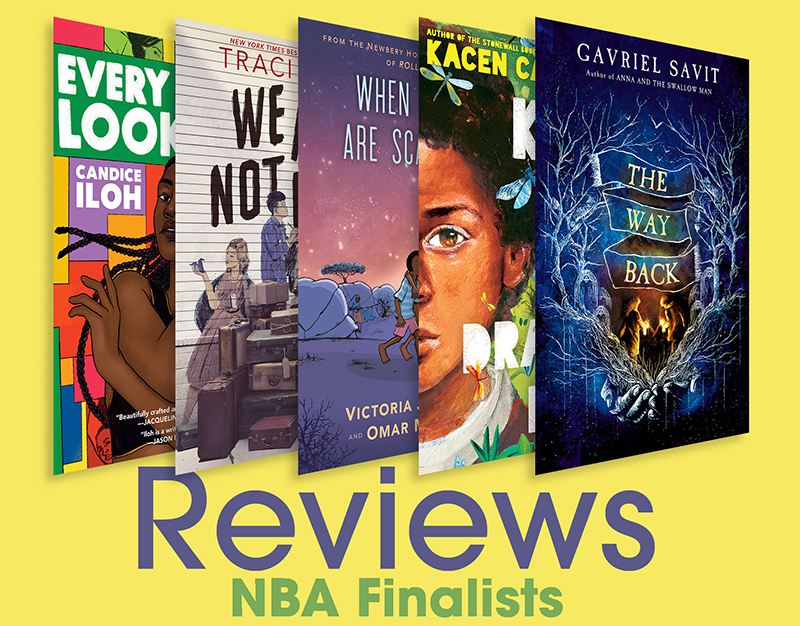
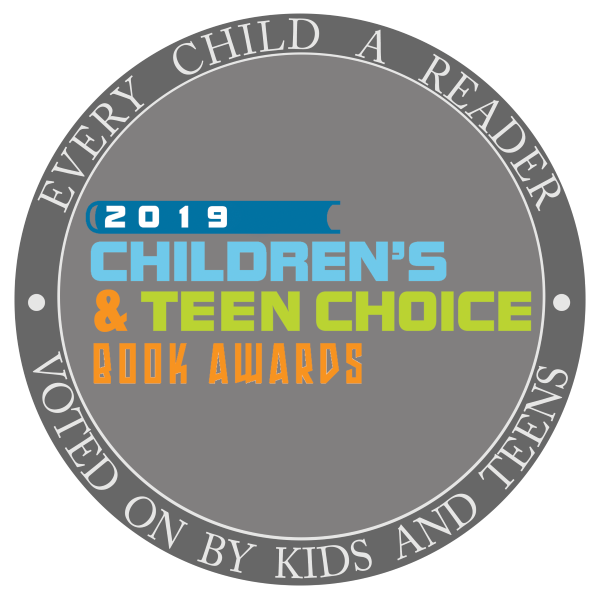
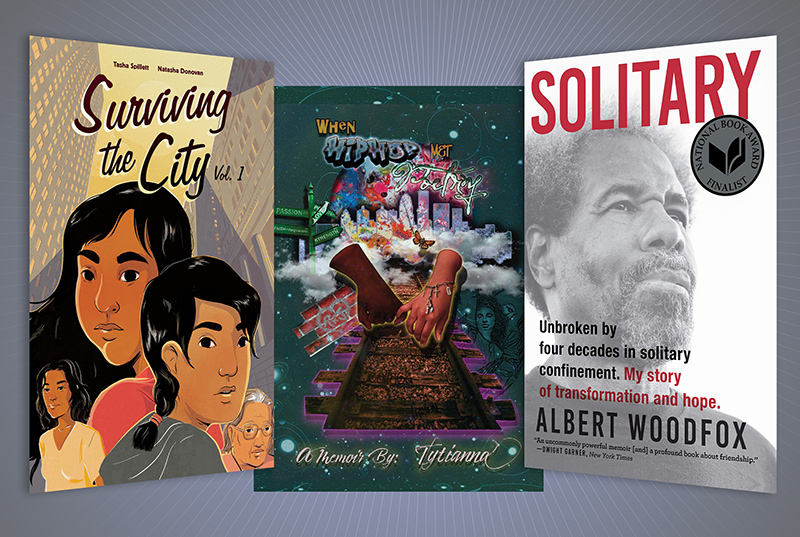
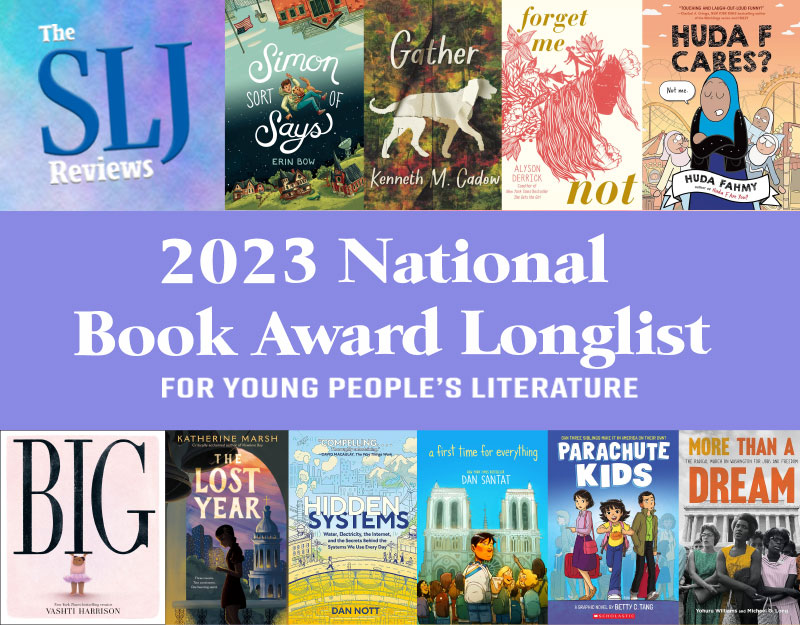
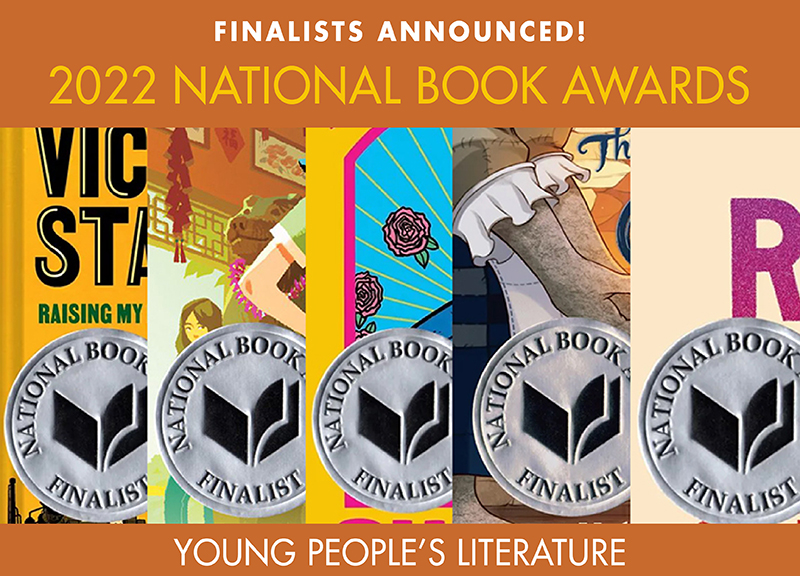
I feel like the regressing is completely true-to-life. Ada is a child living with trauma, and trauma survivors (children and adults) are constantly doing a dance with insecurity and re-activated terror. I find this especially realistic as she spends the beginning of the novel staying in a hospital with caretakers (nurses) who are strangers to her. Wouldn’t this cause a bit of regression in any child?
Susan, great point! My annoyance did not hinder my appreciation of Bradley’s skills in many areas — and now perhaps my annoyance is totally gone!
I saw the regression happen when she had the trauma again of Susan talking about “making arrangements.” Even though Ada wasn’t really being rejected, for several days she was certain she was, which I think is more than enough trauma to cause some regression in trust.
This title tied with Loving vs. Virginia for the second choice of my students. It is , along with Vincent and Theo, one of my two favorites this year. Susan is correct about trauma survivors. I have a family member who has experienced incredible trauma and the insecurity and emotional ups and downs are a normal part of the recovery process. I loved how the author portrays the emotions of Ada so realistically.
It seems to me that if a book is part of a series, then part of what it is trying to accomplish is its role in that series. So evaluating how well it does that should be part of what we’re looking at. Because the only thing the criteria really says is that it’s not an award for the author’s total body of work, right? So the fact that I liked the first book better isn’t relevant, but your concerns over the change in the character from book to book are.
Overall, I liked it a lot. She’s a great writer and the characters are so well-developed and there’s so much emotional depth. I did think Ada recovered from her surgery a bit quickly and would have liked to see more about that adjustment. And she learns to read crazy fast–she doesn’t know her letters and then is suddenly reading and writing.
FWIW, Bradley has stated that this will only be a duology, not a series.
Oops, Ada learned to read in the first book. That makes more sense! I read them back to back the first time, so my notes got a bit mixed. I just reread it by itself. When you read them together (especially since the second one picks up right where the first one leaves off in storytime), I think the regression is more of a problem from a narrative standpoint because it feels like a big jump backwards from the climax of the first book. But rereading it with a little space, it didn’t bother me this time.
Also, the foot does come up more than I remembered. And it makes sense that she wants to focus on the emotional aftermath rather than the physical.
It really is a very good book in all of the ways everyone has already pointed out!
Next to VINCENT & THEO, this is my favorite book of the year.
Bradley has done something rather remarkable: improving on an original that, quite frankly, needed now improving. WAR touches on so many timely themes – grief, trauma, family bonds, discrimination – and does so with a sure, delicate, artful hand. There’s nothing didactic or ham-fisted.
Where the novel really shines is in its character development. I can think of no other book from 2017 whose characters are developed completely from showing – their words and their actions define them. There are few, if any times, that Ada weighs in on even the most minor character. So many authors rely on impressions filtered through a main character, but Ada is so trapped inside her own pain and her own grief that the filter doesn’t exist.
My own emotions shouldn’t factor deeply, but I think its important to note, at least for me, that this is the *only* book I read last year that made me cry. And y’all – I am a cryer. One big sopping sadsack when it comes to literature. Part of this reaction was the artful handling of the subtle LGBTQ themes, and part was the truly satisfying closure in the book. These are characters that linger and that I will certainly miss.
I completely agree about the LGBTQ themes! In that regard I feel similarly about it as I did about The Marvels a few years ago. Beautifully done. Interestingly, when I read The War That Saved My Life to a 4th grade class (who I think all have straight parents) I had to stop near the end of the book and explain that Susan was gay and Becky had been her partner, something they hadn’t picked up on at all because the text called her Susan’s “best friend.” I wonder if kids reading The War I Finally Won would pick up on it.
In any case, I’m reading The War I Finally Won now and I do agree that the character development is incredible, and that it definitely stands alone–and perhaps is even better as a stand-alone than as the second in a duology. Not that I think it doesn’t work as a sequel–it does–but I think Bradley does enough to introduce Ada’s character and circumstances that the first isn’t necessary, and parts of the second that might seem unoriginal would seem completely original to a reader who hadn’t read the first.
I’m almost afraid to write about this book. It is so far above every other eligible book I’ve read this year. (I’m still not comfortable with THUG as eligible.) I so want everyone to seriously consider it. I’m afraid that a sequel can be a hard sell. Particularly one in which the previous title was honored. (Not that we here, schooled by years of Heavy Medal, would allow the past to cloud the present.)
All the characters in this book are rich and complex and completely their own. This is Ada’s story, but she is not selfish. We are allowed to witness many arcs: Maggie’s fight to win her spot in her family, Ruth’s reluctance to be pitied and assimilated, and then Lady Thornton. Oh, Lady Thornton – so sure of herself and her place in the world, and sure of the world as she knows it. Who the good are, who the bad are, and what is needed to protect those she loves. And then that world spins around and flips her on her head, leaving her battered but with clearer eyes. Not many curmudgeons are give this chance to grow.
And then there’s Ada, with a voice so distinct we’d recognize her behind any blackout curtain: snarly, raw, frustrated, and filled with wonder as her world expands. Bradley did her research well on Reactive Attachment Disorder. Experts have recognized it in Ada. She frustrates us for her regression, but if it were missing, Ada wouldn’t have felt as genuine. Unlike FOREVER OR A LONG, LONG TIME, which also showed this disorder, (and was pretty much a book about RAD) Ada is not defined by it. This book, and Ada, are about so much more.
There is texture in this story, from Jamie’s farming, to shopping with rations, to the covert horseback riding with Ruth, to the dragons. Thing to make us smile and draw us into Ada’s world. I realize this is historical fiction, but unlike many historical books, I felt it was more about the people than the period. I would read about these characters in any setting.
The setting however was tactical. Detailed enough to feel like I’d know Thornton Manner if I were to drive by, but not weighed down with excessive description. The plotting is extraordinary. On my second read through, I was often struck by how many events were still to come. So many things happen, but I never found them crammed in. Many times I’ve read historical fiction, when I’ve felt the author contrives situations just to show off her research. The events in this book flowed out in a realistic manner. Perhaps the epilogue at the end was unneeded, but I appreciated any extra time to spent with Ada and company. Also, she and Jamie deserved a grandma.
Chiming in to say I agree with DaNae!
I also want to add that that first and last lines of the book are perfect. They encapsulate Ada’s character arc. They respect a child’s understanding of the world. Just one shift in phrasing, but there’s so much difference in that shift. Here they are:
“You can know things all you like, but that doesn’t mean you believe them.”
“You can know things all you like, and someday you might believe them.”
I would like to agree with DaNae and Destinee as well. I will also add that the kids in my Newbery Club love this book. They extolled its virtues for 30 minutes during our last meeting. I’m not sure that it will prevail over Beyond the Bright Sea but they truly love it.